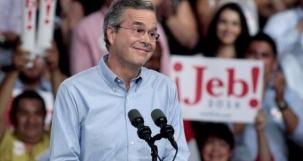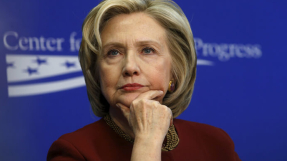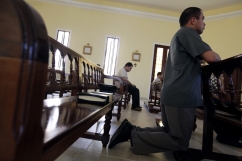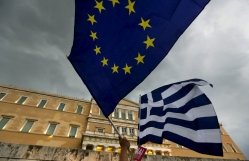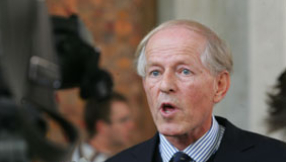The United States and Cuba made history on Wednesday as the two former Cold War foes formally buried the hatchet and agreed to restore diplomatic relations on July 20.
The agreement was formalised with an exchange of letters between US President Barack Obama and Cuban President Raul Castro. The letters set July 20 for the re-establishment of relations, with US Secretary of State John Kerry scheduled to fly to Havana on that day to become the first US secretary of state to visit the country in 70 years. The two neighbouring countries will then open embassies in each other's capital on that day or later.
The agreement ends 56 years of enmity between the two countries which started when rebels led by Fidel Castro overthrew the US-backed Cuban government of Fulgencio Batista on Jan. 1, 1959.
"More than 54 years ago, at the height of the Cold War, the United States closed its embassy in Havana. Today, I can announce that the United States has agreed to formally re-establish diplomatic relations with the Republic of Cuba, and re-open embassies in our respective countries," Obama said in a statement released by the White House. "This is a historic step forward in our efforts to normalise relations with the Cuban government and people, and begin a new chapter with our neighbours in the Americas."
Obama said the US will look for new ways to cooperate with Cuba, especially on their common interests, but said that the two countries will continue to have differences in values.
"On issues of common interest—like counterterrorism, disaster response, and development—we will find new ways to cooperate with Cuba. And I've been clear that we will also continue to have some very serious differences. That will include America's enduring support for universal values, like freedom of speech and assembly, and the ability to access information. And we will not hesitate to speak out when we see actions that contradict those values," he said.
Obama also underlined how Americans will engage Cubans in terms of "greater travel, people-to-people and commercial ties."
"There are Americans who want to travel to Cuba and American businesses who want to invest in Cuba. American colleges and universities that want to partner with Cuba. Above all, Americans who want to get to know their neighbours to the south. And through that engagement, we can also help the Cuban people improve their own lives."
Cuban President Raul Castro said in a letter to Obama that he wants to establish "friendship" between the two countries, reported CNN.
"We want to develop a friendship between our two nations that is based on the equality of rights and the people's free will," said Castro.
However, the Cuban Foreign Ministry emphasised that issues still exist despite the thawing of relations because of the US-imposed embargo.
"There could be no normal relations between Cuba and the United States as long as the economic, commercial and financial blockade continues to be fully implemented, causing damage and scarcities to the Cuban people," the ministry said in a statement.
"The blockade is the main obstacle to the development of our economy; it is a violation of International Law and affects the interests of all countries, including those of the United States."
Not all Cuban-Americans welcome the news however, including Sen. Marco Rubio (R-Fla.) who moved against the confirmation of an ambassador until "substantive progress is made" on human rights issues that have plagued Cuba.
"Establishing diplomatic relations with the Castro regime without verified improvements in the [human rights] situation faced by the Cuban people would not be consistent with our values as a nation and the intent of the US Congress, as codified in law," Rubio told Kerry in a letter.










